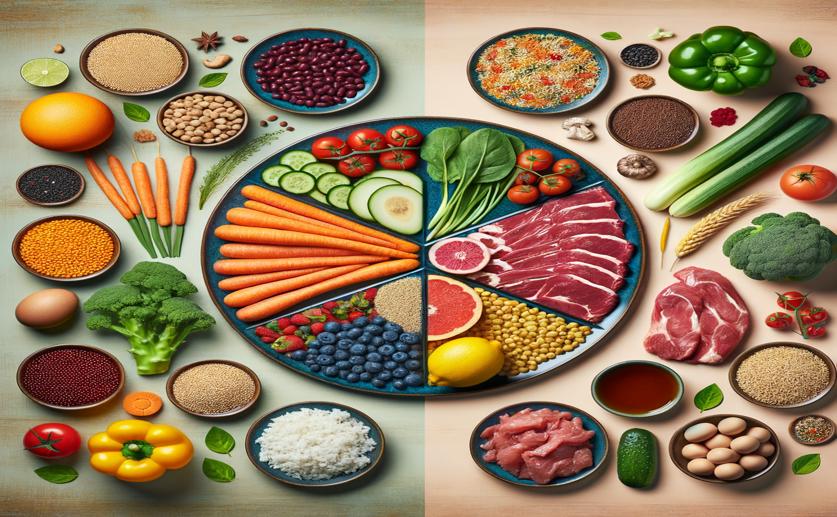
Comparing Diet-Related Inflammation Levels in Vegetarians and Meat Eaters
Greg Howard
24th August, 2024

Image Source: Natural Science News, 2024
Key Findings
- The study took place in Shanghai and involved 279 vegetarians and omnivores of the same sex and age
- Vegetarians had lower energy-adjusted inflammatory index scores compared to omnivores
- Despite theoretical anti-inflammatory benefits, vegetarians showed higher levels of certain inflammatory markers, likely due to lower energy intake
NutritionHealthFitness And Diet
References
Main Study
1) Comparison of dietary inflammatory index and inflammatory biomarkers between vegetarians and omnivores in Chinese population.
Published 23rd August, 2024
https://doi.org/10.1038/s41598-024-69168-y
Related Studies
2) Total cardiovascular risk profile of Taiwanese vegetarians.
Journal: European journal of clinical nutrition, Issue: Vol 62, Issue 1, Jan 2008
3) Comparative Evaluation of Biomarkers of Inflammation Among Indian Women With Polycystic Ovary Syndrome (PCOS) Consuming Vegetarian vs. Non-vegetarian Diet.



 4th August, 2024 | Jenn Hoskins
4th August, 2024 | Jenn Hoskins